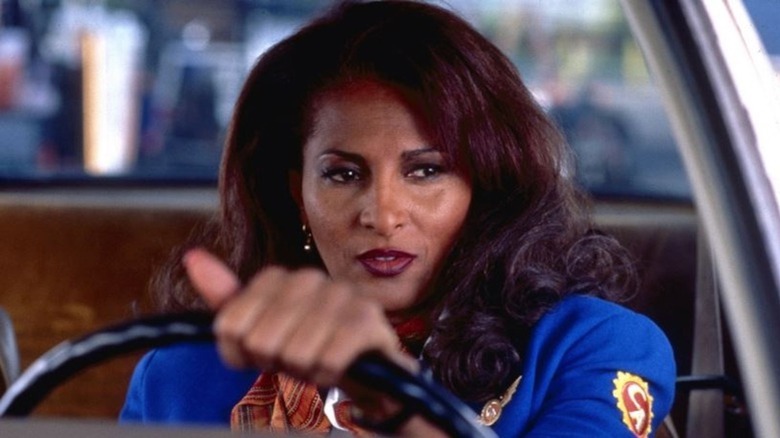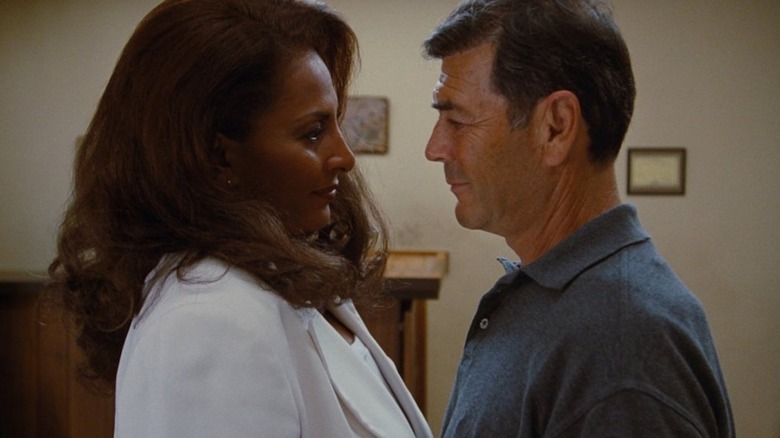A Great Audition Wasn't Enough For Quentin Tarantino To Cast Pam Grier In Pulp Fiction
As a lifelong fan of Blaxploitation flicks and exploitation movies in general, of course Quentin Tarantino was desperate to work with Pam Grier. The legendary star of "The Big Bird Cage," "Coffey," and "Foxy Brown" meshed uncommon beauty with undeniable grit. She wasn't looking for trouble. She was trouble. And the bad folks clownish enough to try her on for size always found her to be a treacherously poor fit.
Unfortunately, when the Blaxploitation trend faded in the late 1970s, Hollywood failed Grier. She went from starring roles to underwritten supporting parts in a string of mostly forgettable movies. Strangely, she didn't benefit much from the Black filmmaking renaissance of the early 1990s led by directors like Spike Lee, John Singleton and the Hughes brothers. Then 1996 happened. Though the films weren't particularly big hits, the triple-punch of "Mars Attacks!," "Original Gangsters," and "Escape from L.A." proved she still had plenty of swagger and good old-fashioned star power to lead a movie. She just needed to find the right lead part.
Tarantino finally came through in 1997 with the titular role of flight attendant/smuggler "Jackie Brown," but the two nearly teamed up four years earlier for "Pulp Fiction." How could Tarantino resist working with one of his big-screen heroes?
You can't force chemistry
In a live Q&A with Pam Grier, Quentin Tarantino, Robert Forster, and Lawrence Bender posted to The Guardian in 1998, Grier was initially blunt about why she didn't pass the audition. "I was too tall," she said. "Eric [Stoltz] was short."
According to Tarantino, it was a little more complicated than that: "It is just a situation where she came in and gave a great reading, but I wanted it to be right, I wanted it to be perfect." Grier ultimately concurred:
"I felt I really needed a compatibility with Eric, and you had already cast him. You already knew him and felt his beats and rhythm, and he really needed to see a chemistry with us. I didn't give him what he needed, which was great because Quentin said, 'I still want to work with her' and it was to my advantage, possibly, maybe subliminally."
I'll say. Tarantino has made six movies since "Jackie Brown" (we count "Kill Bill" as one movie in this dojo), but his collaboration with Grier is still his finest hour as a filmmaker. It's a wise and sad movie about getting old and realizing there aren't a lot of moves left before it's checkmate. Grier and Forster (as world-weary bail bondsman Max Cherry) have a sensational chemistry from their first scene together. We dearly want these two to run off together, but they're both too settled in their lives to shake things up. It's one of the greatest unconsummated romances in film history, one that aches just a little more with each viewing. I can't hear Bobby Womack's "Across 110th Street" and not let out a deep, melancholy sigh.

